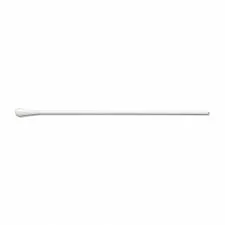Xul . 31, 2024 20:52 Back to list
Finding Reliable Suppliers for Hepatitis C Sterile Hold Test Kits and Products
Understanding Hepatitis C Testing The Role of Sterile Hold Tests and Supplier Considerations
Hepatitis C is a viral infection that affects the liver and can lead to serious health complications, including liver cirrhosis and liver cancer. Early detection and diagnosis are crucial for effective treatment and management of the disease. One of the methods used in the diagnostic process is the sterile hold test, which plays a significant role in ensuring accurate results. This article will explore the importance of the sterile hold test in hepatitis C diagnosis and how to choose a reliable supplier for these testing kits.
What is a Sterile Hold Test?
The sterile hold test is a method used to collect and store samples, particularly blood specimens, in a way that prevents contamination. Contaminated samples can lead to inaccurate test results, which may result in misdiagnosis and inappropriate treatment. The sterile hold process involves utilizing specialized equipment and techniques that ensure samples remain uncontaminated from the point of collection to the laboratory analysis.
In the context of hepatitis C testing, the sterile hold test ensures that viral loads are accurately measured. These measurements are crucial for determining the stage of the infection, assessing the effectiveness of treatment, and deciding on the most appropriate therapeutic interventions.
The Importance of Accurate Hepatitis C Testing
Accurate hepatitis C testing is essential for several reasons
1. Early Detection Identifying the virus early can significantly impact treatment options and outcomes. The earlier a patient is diagnosed, the sooner they can begin antiviral therapies, which can lead to a higher chance of curing the infection.
2. Preventing Transmission Effective testing can help identify individuals who may unknowingly transmit the virus to others. Public health initiatives often rely on accurate testing data to implement effective prevention strategies.
3. Patient Management Understanding the viral load and the genotype of the virus can help healthcare providers tailor treatment plans specific to the patient's needs, optimizing the chances of success.
buy hepatitis c sterile hold test supplier

Choosing a Reliable Supplier for Sterile Hold Test Kits
When it comes to sourcing sterile hold test kits for hepatitis C, it is crucial to choose a supplier that meets specific criteria to ensure quality and reliability.
1. Regulatory Compliance Ensure the supplier adheres to local and international regulations, such as those set by the FDA or WHO. This compliance guarantees that the products are safe, effective, and manufactured under strict quality control guidelines.
2. Quality Assurance A reputable supplier should provide evidence of quality assurance processes in place. Look for certifications or accreditations that validate the integrity and reliability of their products.
3. Product Range The supplier should offer a wide range of testing options and related products. Having access to various types of test kits allows healthcare providers to adjust their testing protocols according to patient needs.
4. Customer Support A reliable supplier should offer robust customer support. This includes assistance with product selection, troubleshooting issues, and providing educational resources about the testing process.
5. Reputation Research the supplier's reputation in the industry. Reading reviews, seeking recommendations from healthcare professionals, and considering the supplier's track record can provide insights into their reliability.
Conclusion
The fight against hepatitis C necessitates accurate and reliable testing methods, with the sterile hold test playing a vital role in the diagnosis and management of the disease. Choosing the right supplier for sterile hold test kits is essential to ensure quality and efficacy. By prioritizing regulatory compliance, quality assurance, and customer support, healthcare providers can enhance their diagnostic capabilities and ultimately improve patient outcomes in the battle against hepatitis C.
-
China Nylon Flocking Swabs - AI Enhanced Quality Collectors
NewsAug.03,2025
-
Highly Accurate hCG Pregnancy Test Strips - 5 Min Results
NewsAug.02,2025
-
Premium Empty ABS Plastic Cassettes: Durable & Lightweight Storage
NewsAug.01,2025
-
Accurate Cocaine (Coc) Rapid Test Kit | Fast & Reliable Detection
NewsJul.31,2025
-
Accurate HCG Pregnancy Test Strips | Fast Home Use Kit
NewsJul.31,2025
-
Reliable Early Pregnancy Test Kit Supplier - Multi Plastic Cassette Options
NewsJul.30,2025

